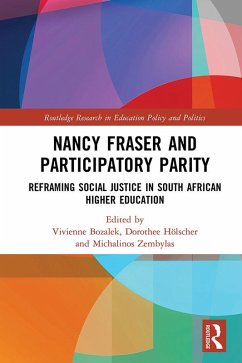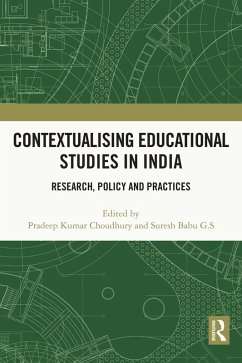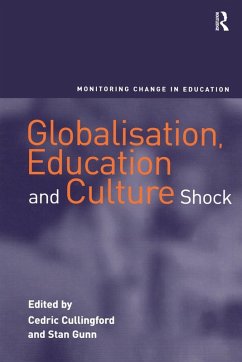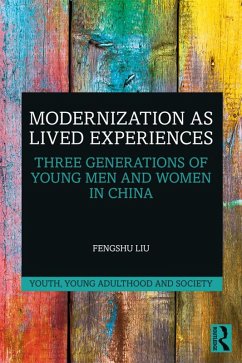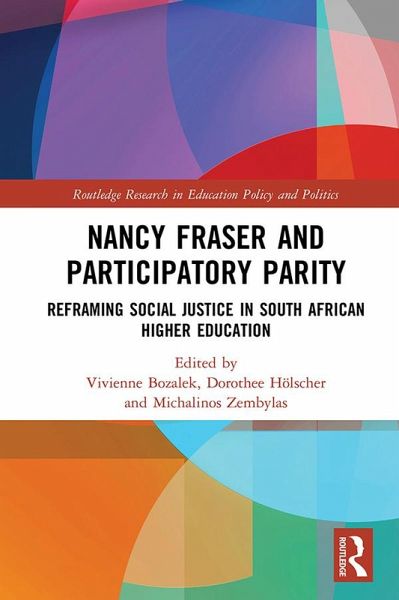
Nancy Fraser and Participatory Parity (eBook, PDF)
Reframing Social Justice in South African Higher Education
Redaktion: Bozalek, Vivienne; Zembylas, Michalinos; Hölscher, Dorothee
Versandkostenfrei!
Sofort per Download lieferbar
39,95 €
inkl. MwSt.
Weitere Ausgaben:

PAYBACK Punkte
20 °P sammeln!
Nancy Fraser and Participatory Parity provides a philosophical framework based on the work of Nancy Fraser, examining how her ideas can be used to analyse contemporary issues in higher education and reimagine higher education practices. Providing a forum for considering Fraser's work in relation to participatory parity in higher education, the book shows how her political philosophy is relevant to higher education pedagogies, scholarship and practice.The recent student protests in South Africa in 2015 and 2016 has created an impetus to think about how to do things differently in higher educati...
Nancy Fraser and Participatory Parity provides a philosophical framework based on the work of Nancy Fraser, examining how her ideas can be used to analyse contemporary issues in higher education and reimagine higher education practices. Providing a forum for considering Fraser's work in relation to participatory parity in higher education, the book shows how her political philosophy is relevant to higher education pedagogies, scholarship and practice.
The recent student protests in South Africa in 2015 and 2016 has created an impetus to think about how to do things differently in higher education in response to economic, cultural and political inequities. This South African experience is aptly used as a prime example of rethinking issues of coloniality and social injustice in higher education. The contributors' use of Nancy Fraser's theories provides their analyses and reflections with a particularly sharp lens and clear focus. The book also puts her work into conversation with other contemporary writers on social justice and explores the resonances and differentiations of the various approaches.
This book will be of great interest for academics, researchers and post-graduate students in the fields of social justice in education and educational policy.
The recent student protests in South Africa in 2015 and 2016 has created an impetus to think about how to do things differently in higher education in response to economic, cultural and political inequities. This South African experience is aptly used as a prime example of rethinking issues of coloniality and social injustice in higher education. The contributors' use of Nancy Fraser's theories provides their analyses and reflections with a particularly sharp lens and clear focus. The book also puts her work into conversation with other contemporary writers on social justice and explores the resonances and differentiations of the various approaches.
This book will be of great interest for academics, researchers and post-graduate students in the fields of social justice in education and educational policy.
Dieser Download kann aus rechtlichen Gründen nur mit Rechnungsadresse in A, B, BG, CY, CZ, D, DK, EW, E, FIN, F, GR, HR, H, IRL, I, LT, L, LR, M, NL, PL, P, R, S, SLO, SK ausgeliefert werden.




